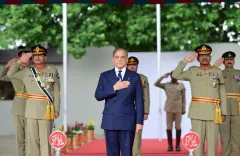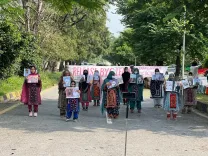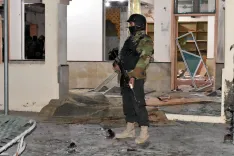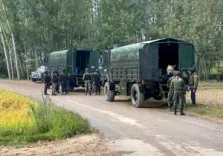Nine Turkish Soldiers Die in Aleppo Conflict
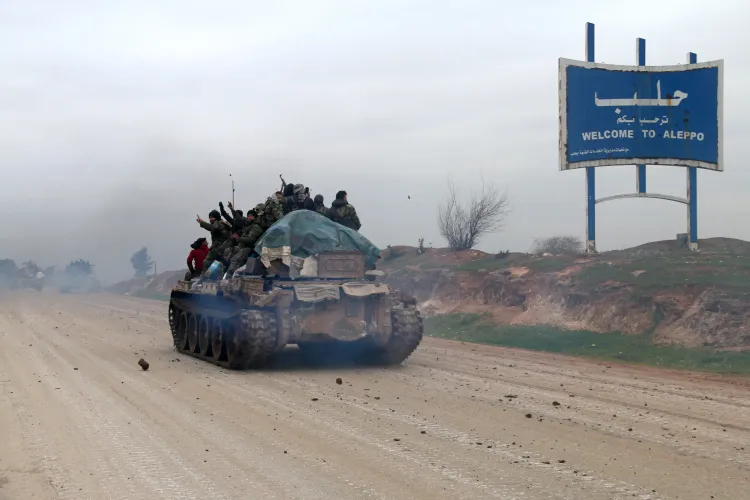
Synopsis
Key Takeaways
- Nine Turkish soldiers killed in SDF attacks.
- Eleven soldiers injured during the assaults.
- Attacks viewed as retaliation for Turkish offensives.
- Ongoing conflict between Turkish forces and SDF.
- SDF open to negotiations regarding military integration.
Damascus, Jan 24 (NationPress) Nine Turkish soldiers lost their lives and 11 others sustained injuries due to attacks orchestrated by the Kurdish-led Syrian Democratic Forces (SDF) targeting Turkish military bases in northern Aleppo province, according to a war monitoring group.
The Syrian Observatory for Human Rights reported that the SDF's strikes impacted bases on Thursday in the al-Hoshriya area. Additionally, an SDF assault on a military gathering in the village of Atshana, located south of Manbij, resulted in casualties that are yet to be confirmed, as noted by the Observatory.
The Observatory indicated that the SDF's attacks seemed to be a response to ongoing ground and air offensives by Turkish forces and their allied factions targeting SDF-controlled territories in northern and eastern Syria.
On Thursday, Turkish air forces reportedly bombed regions near the Tishreen Dam close to Manbij, generating explosions and smoke clouds, although no immediate casualty reports emerged.
Furthermore, Turkish artillery targeted two villages situated west of Ayn al-Arab (Kobani), as per the Observatory's report, confirmed by Xinhua news agency.
The Observatory revealed that 483 individuals, including 51 civilians, have died since the surge in hostilities between the SDF and Turkish-backed factions commenced on December 12, 2024.
Last week, the principal commander of the SDF stated that his forces are not planning to relinquish their arms or disband, yet are open to discussions about integrating into Syria's future military framework.
In an interview with Al Arabiya on Saturday, Mazloum Abdi warned that any approach other than a mutual agreement would 'lead to major problems.'
'We haven't decided to give up our arms or disband,' Abdi stated, adding that the SDF is receptive to talks about forming 'a united national army.'
He further mentioned that the SDF has suggested establishing a joint military committee to address the matter and stressed his opposition to 'two separate armies in Syria.'
Abdi highlighted that SDF representatives were excluded from discussions led by Syria's de facto leader Ahmed al-Sharaa regarding the unification of various factions into Syria's new Defense Ministry.
The SDF, supported by the U.S. and predominantly composed of Kurdish units, governs substantial territories in northern and eastern Syria.
An SDF delegation met with al-Sharaa in Damascus on December 30 for the first time following the collapse of Bashar al-Assad's government on December 8, 2024.
In the wake of the unexpected advance led by Hayat Tahrir al-Sham forces into Damascus in early December, Turkish-backed factions initiated an offensive against Kurdish fighters in northern Syria, compelling the SDF to retreat from certain regions.
Turkey perceives the Syrian Kurdish People's Protection Units (YPG), which constitutes the core of the SDF, as a branch of the banned Kurdistan Workers' Party (PKK).


